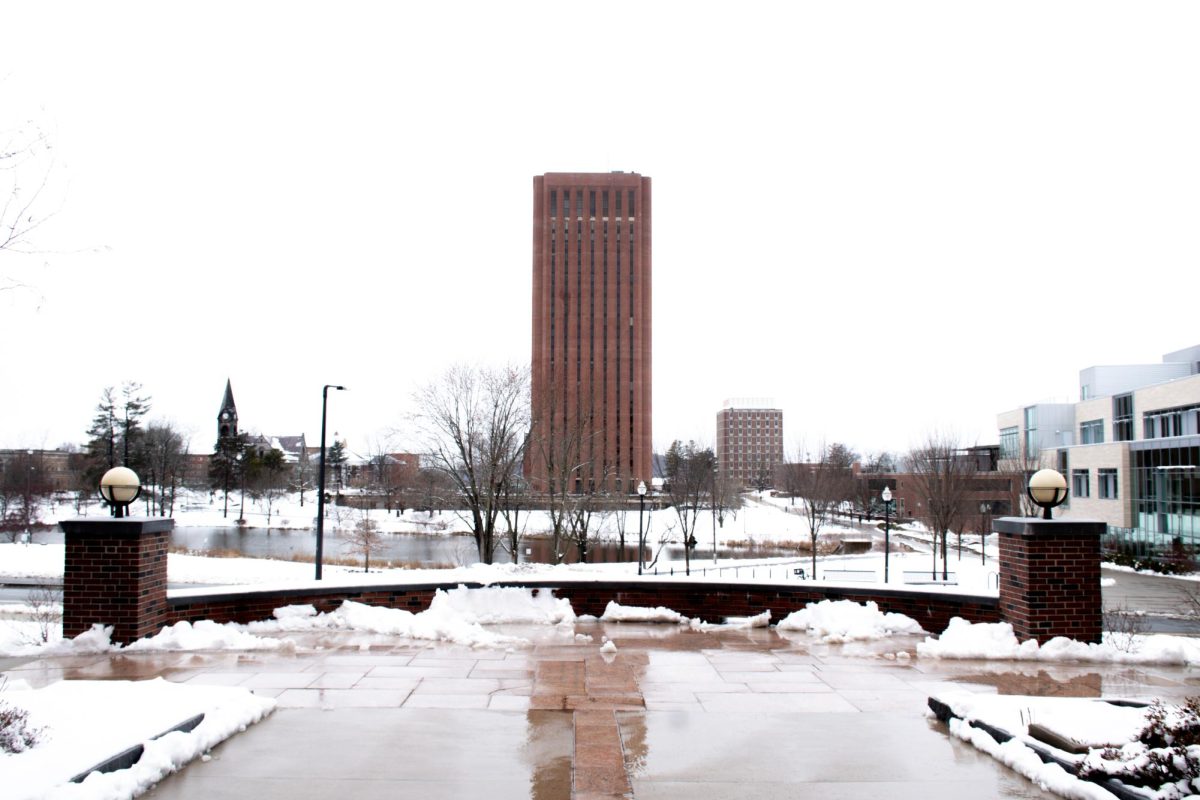In the Library Learning Commons of the University of Massachusetts, adopted students have their faces displayed on large panels, with their individual adoption experiences below. Titled “Giving Voice to Adoption,” the exhibit is hosted by the Adopted Student Advisory Panel (ASAP), a group on campus dedicated to exploring and uplifting what it means to be an adoptee.
Gabriele Martinelli, a junior public health and anthropology major, is one of ASAP’s members sharing her adoption story, as well as interviewing the other members. Growing up, she didn’t really talk about her adoption openly. She explained that because it can be a niche topic, adoption might not be addressed within a family or with friends.
“I know a couple of families where it is not talked about, like where the kid knows they are adopted but it’s not a conversation they can open with their parents,” Martinelli said.
Throughout the exhibit, adoption is categorized as a “hidden identity,” meaning that one is not able to identify whether someone is adopted simply based on outer appearances. This makes it tabooed in the world outside of adoption; it becomes an untouchable subject. When people assume that they “shouldn’t” or “can’t” mention a topic, it can impact those who are affected by it.
Jonathan Dees, a senior public health major, explained that the stigma around adoption can make it feel like adoptees should hide a part of themselves or their identity. Highlighting ASAP members’ stories partnered with a picture accompaniment breaks down the stigmatization, and is a way of addressing what it means to be an adoptee.
“We are trying to show that an adopted identity is something that should be highlighted, should be shown, should be talked about,” Dees said. “It shouldn’t be tabooed, or niched, or stigmatized in the way that it is. So, to me, that is the most important part of this event. Getting people’s faces and their voices.”
Millie Ferguson, senior psychology and speech-language-hearing sciences major and president of ASAP, has a panel dedicated to her profile.
“Adoption was always something that I’ve been talking about for my entire life, and putting together this exhibit it was really inspiring to see everyone else’s stories,” Ferguson said. “It felt pretty natural and pretty easy, but kind of condensing it into a five-minute interview was pretty difficult because I could talk about it all day.”
The idea of coming forth and sharing a vulnerable story can be intimidating. That’s why, as Ferguson said, stepping into a safe space such as ASAP can be the first step.
Chan Groccia, a senior anthropology major, agrees with Ferguson. He explained that people’s reactions, or social expectations, can shy them away from wanting to join a club like ASAP.
“It definitely is harder to talk about, and hard getting new people [to] want to come experience this club,” Groccia said. “People make fun of people who are adopted…so it’s kind of seen as a negative thing or used as an insult. So sometimes that social peer pressure can make people back off from wanting to join the club.”
Many misconceptions about adoption stem from inaccurate media portrayals of what it means to be an adoptee. According to Ferguson, in the general media, adoption is portrayed in two ways: there is either the child who has been perfectly “assimilated” into their adoption, or the one who has “trauma” that is blamed on their adoption.
Ferguson said that these media portrayals are nowhere near accurate, and that each adoptee is most likely somewhere in between: “We’re not necessarily one of these two extremes, and we have conflicting emotions. All the time. And that’s not necessarily captured in the media.”
“So, we really want to normalize the fact that adoptees can feel conflicted. They can feel grateful, but they don’t necessarily have to all the time. It’s not something people are aware of,” Ferguson added.
The unique experiences of individual adoptees are, at the core, what makes up this exhibit.
Ferguson explained that the photos and stories that the adoptees share not only bring together the inner community, but bring awareness to those who are not adopted to create a more meaningful and accurate portrayal of an adoptees experience.
“Something that we are really trying to highlight is that all adoptees have very unique stories…But as adoptees, there is a shared universality of experiences. And I think college is a really great way to show that because we grew up in different hometowns, and here we are together, and we still have that shared experience,” Ferguson said.
The “Giving Voice to Adoption” exhibit runs from Sunday, March 3 to Friday, March 15 in the Learning Commons of the Library, from 9:00AM to 5:00PM.
ASAP can be found on Instagram at @asap_umass.
Eve Neumann can be reached at [email protected].




















